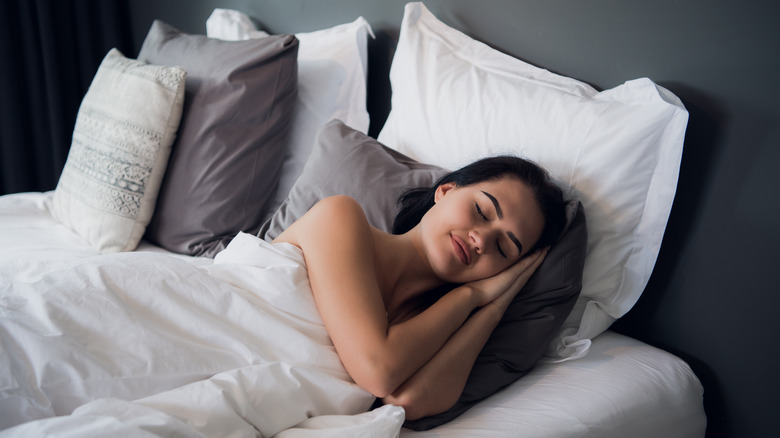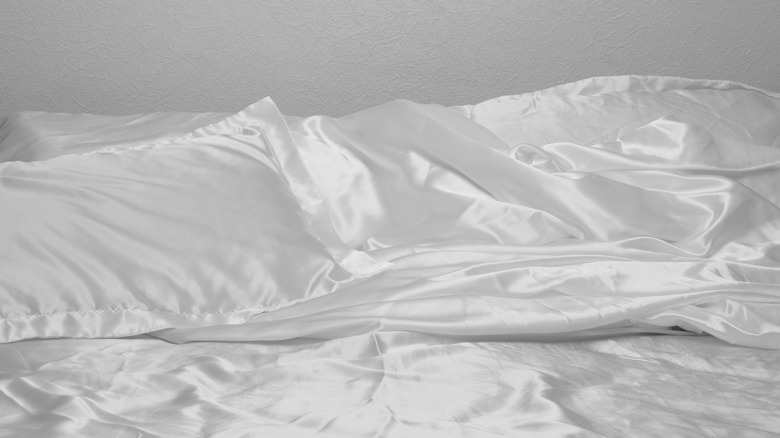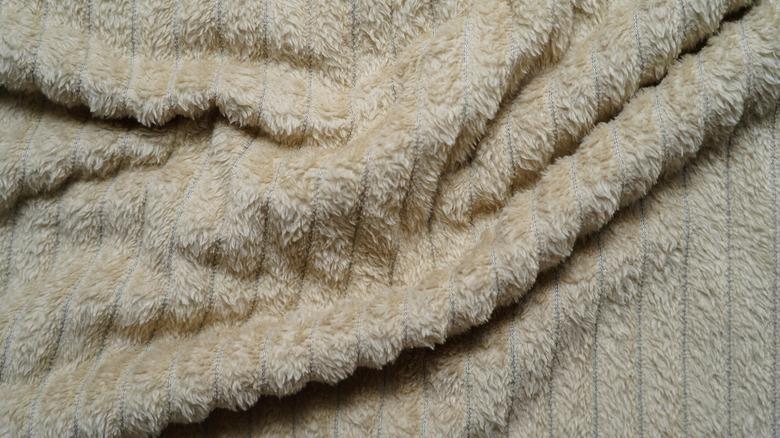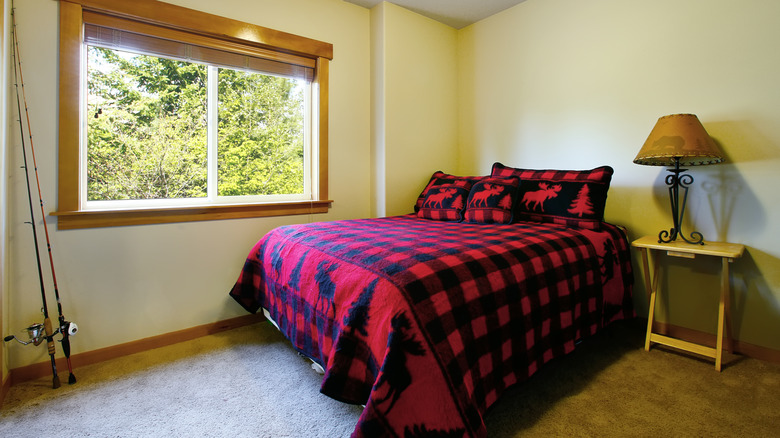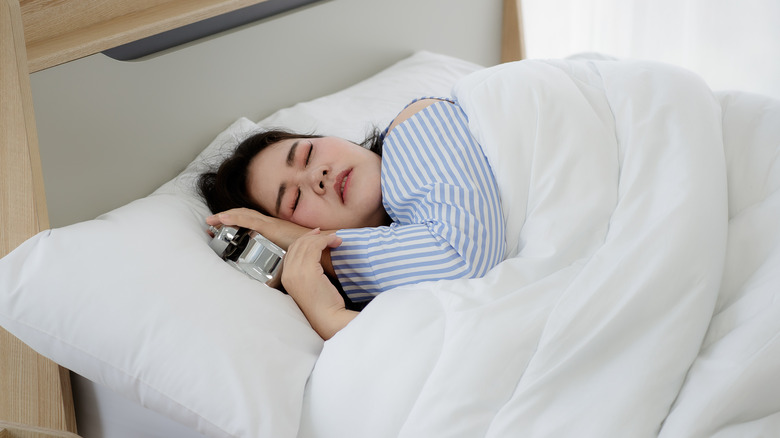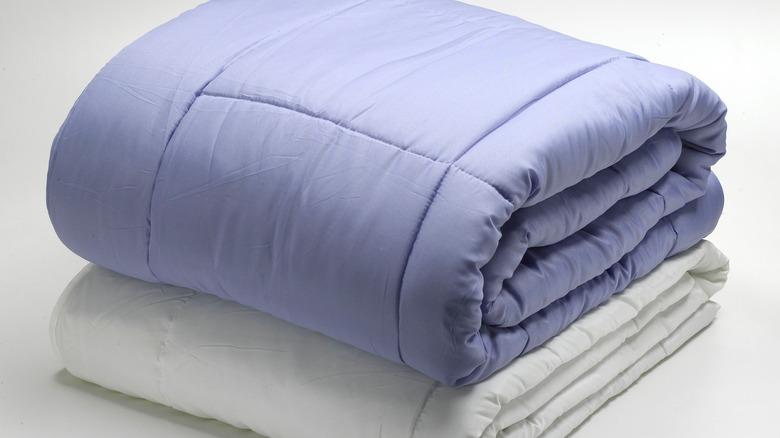Bedding Materials To Avoid For A Better Night's Sleep
The conversation about the quality of sleep is no new topic. In fact, having a good night's rest is highly encouraged among adults. According to the Centers for Disease Control and Prevention (CDC), more than 1/3 of American adults don't get the minimum 7 hours of sleep that is recommended. It is also worth mentioning that severe sleep deprivation is linked to adverse health effects like depression, obesity, and even type 2 diabetes, just to mention a few. While the main reason for the lack of enough sleep among adults is often the erratic and busy schedules, you will be surprised to find out that the bedding material also plays a part in the problem.
The fabric of the bedding you choose has a lot of influence on how well you sleep at night. Remember, you need to get comfortable in order to sleep. So if your bedding fabric is not giving you the necessary comfort, sleeping soundly will become a problem. Besides having a regular sleep pattern and staying away from caffeinated drinks at night, you must also be mindful of your bedding material. Here are some of the common bedding materials that might be compromising your sleep quality.
Nylon
One of the most popular fabrics that have found use in different industries is nylon. This material is highly available and is loved for its strength, durability, and also the fact that it is light in weight and easy to wash. While this synthetic fabric looks good on paper, using it for bedding materials is not encouraged. As mentioned before, good quality sleep and comfort go hand in glove. As such, some of this material's properties do not facilitate the comfort necessary for a good slumber. One of the major downsides of nylon is that it is not breathable and also holds moisture (via Sewing Is Cool).
This means it will trap your body's heat, initiating more sweat at night. If you have slept in a very warm room before, you definitely know how uncomfortable it can get when you are hot and sweaty. Also, since this fabric will not absorb your body's sweat, you will get restless, which will compromise your beauty sleep, especially during the hot months. You can use nylon fabrics for other bedding pieces, but not your sheets or pillowcase.
Polyester
Another popular synthetic material that has almost the same properties as nylon is polyester. Because it is 100% synthetic, polyester is also relatively affordable compared to other fabrics like linen or silk. It is not uncommon to find bedding that consists of this material and a different natural fabric like cotton. So how is polyester as a bedding material? Well, some of the upsides of this fabric are that it is quite strong, durable, and also wrinkle resistant, mentions Mattress Clarity. On the flip side, however, it is not too different from nylon.
This fabric is neither breathable nor moisture absorbent, which is quite detrimental to the quality of your sleep throughout the night. But it doesn't stop there; Biobide mentions that this fabric is also quite harmful to human health. It is carcinogenic, is known to irritate the skin, and also affects your immune system. While it is common for manufacturers to advertise and promote the benefits of this synthetic material, it will compromise your sleep quality and, even worse, destroy your health. The money you will save on polyester bedding is not worth the risk that comes with using this fabric.
Flannel sheets
Flannel fabrics for your sheets can be a great addition, especially during cold winter nights. They are not only warm but cozy enough to induce sleep, even for those who find it hard to fall asleep. However, it is also necessary to point out that the coziness is also their undoing. This fabric is notorious for trapping you in your own body heat. No one wants to wake up in the dead of night drenched in sweat.
You can never ignore the impact of too much heat on your sleep quality; according to HuffPost, the ideal sleeping temperature should be between 60 and 67 degrees Fahrenheit. If you get hot quite easily during the night, flannel sheets might not be the best option for you, especially during the summer. Instead, go for the more breathable alternatives with a relatively lower thread count. On the other hand, if you are not a hot sleeper, flannel sheets might be more comfortable than most other bedding fabrics.
Weighted blankets
For those who struggle to sleep, weighted blankets can be a good addition to the bedroom. Such blankets are designed to be relatively heavier than the normal types to create a feeling of calmness and relaxation that is known to induce sleep (via Sleep Foundation). While this is certainly true, it is also important to note that they are not for everyone, at least not for hot sleepers. According to Medical News Today, the extra weight on the blankets often makes them trap heat, which can get quite uncomfortable.
The good news, however, is that weighted blankets come in different types, including cooling weighted blanket options. The fabric plays a huge role in how hot you will feel using them, so for this reason, the cooling options make use of breathable fabrics like cotton that help regulate the body temperature. Another good option for hot sleepers is weighted blankets with a knitted design. They will provide the necessary layers to keep you comfortable without necessarily holding you cooked up in extreme heat.
Mind the thread count
Most homeowners are conscious of the thread count every time they are out shopping for bedding, especially sheets. The Consumer Reports defines this as the total vertical and horizontal threads for every square inch. But how important is the thread count? What does it have to do with the quality of your sleep? For a long time, a higher thread count has been considered the benchmark for quality fabrics. However, this cannot be any further from the truth; per Sleep Number, more doesn't always mean better.
In fact, a count of over 400-600 threads might not be anywhere as good as advertised. The higher the number, the denser and heavier the fabric gets. Such bedding kinds are less breathable, meaning you will be sweating more, making you uncomfortable while sleeping. And while most thread counts range between 200 and 800, The Sleep Doctor mentions that the ideal count should be between 200 and 400 for most fabrics. This sweet spot provides the perfect balance between comfort and luxury.
